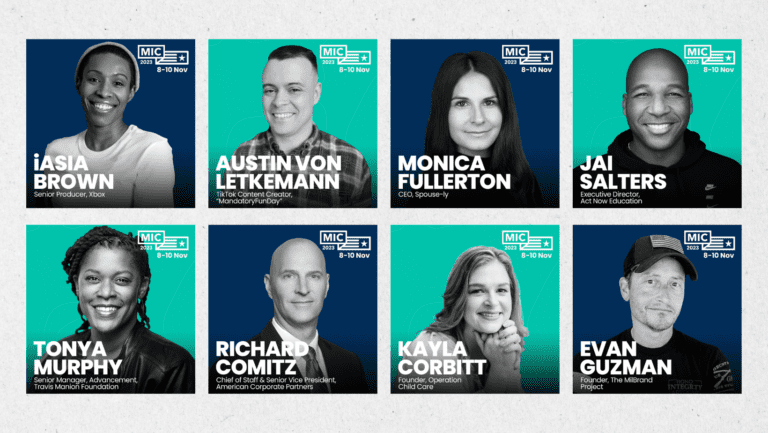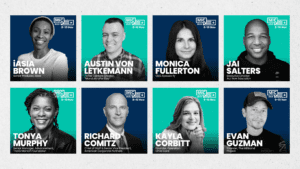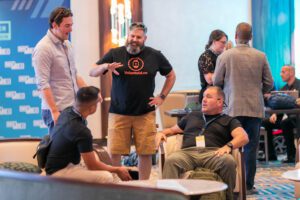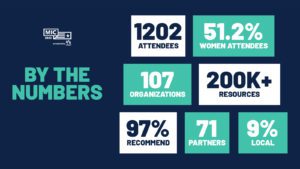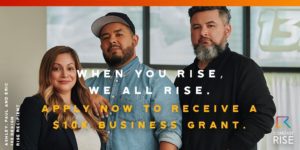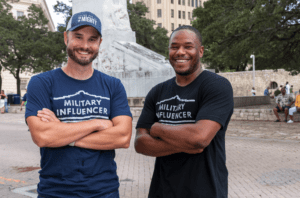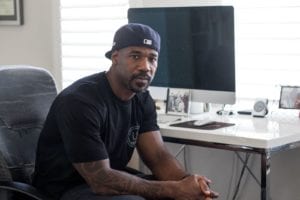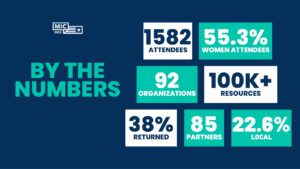
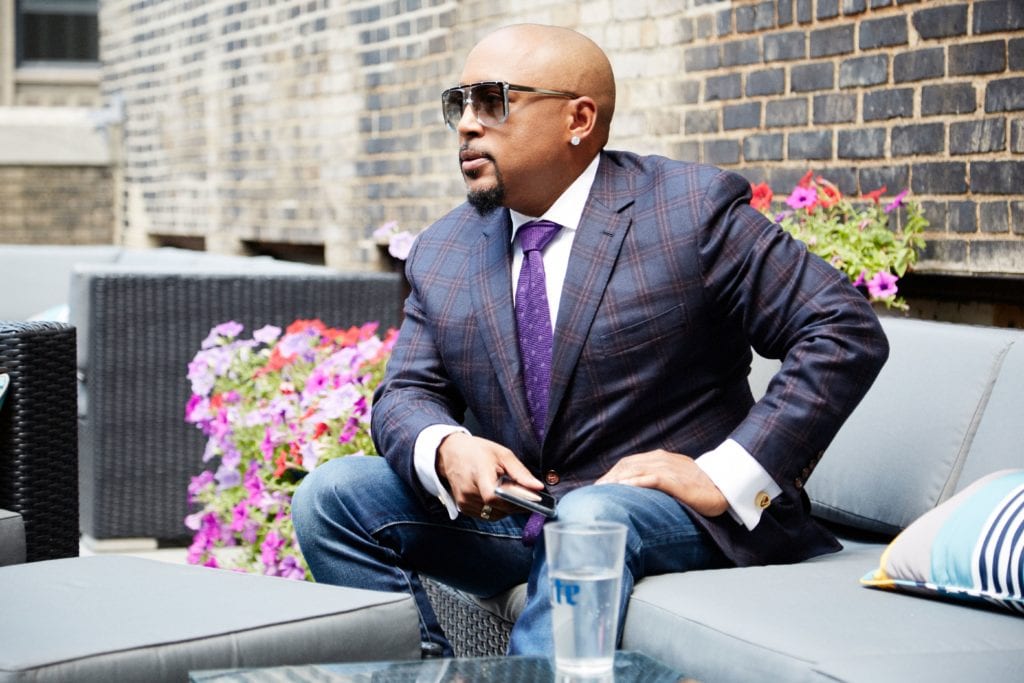
Going outside the tank with Daymond John
- by
- Bianca M. Strzalkowski
The People’s Shark says life is a series of mentors.
“First of all, don’t go for the Daymond Johns and the Mark Cubans and the Barbara Corcorans, go for the local mentor. My mentor started off as, first my mother, second a teacher, but third was a man who owned a corner store in my neighborhood … the reality is he owned that store for 20 years and he dealt with everything from politics changing to new technology to competition. He understands the fundamentals of business,” he said.
It is that “grassroots approach” to relationship building that helped John find success with FUBU — a global lifestyle brand climbing to $6 billion in sales after starting with a $40 budget, according to his website. He said it is the people who believed in the products in its earliest development that convinced others to help John take it to the international level.
For new and aspiring entrepreneurs chasing the next level of success for their venture, John urges practicing the concept of making mistakes on a small scale especially as it relates to acquiring capital.
“We’ve been trained over the course of our lives — whether it’s TV shows or anything else — you need money to make money and all those things are not true,” he said. “If you come to the idea of opening a business with how much money you need and more and more and more, that’s the wrong approach. The proper approach is to come with what tools do you currently have, how can you execute these things in a very small manner — meaning one step, two steps — you know, real entrepreneurs that’s what they do, they take affordable steps."
The reason for making mistakes very small, he says, is because what is your worst situation? Your worst situation is you fail at the business — something he has experience with. John closed FUBU three times from 1989 to 1992, losing a few thousand dollars. But what he didn’t lose was room to go at it again, because he made mistakes small.
“If you go out and take the $200,000 to $300,000 loans and you go bankrupt after seven years, you have lost a lot of friends, you have lost a lot of money, you haven’t been able to come back from it — you’re potentially bankrupt, your credit is ruined and that’s why I say all that to say, you have to get Money at the smallest amount and create your proof of concept first. And then go out there and grow the business,” John explained.
He adds doing your homework is an important step, including researching what has worked and not worked. The evidence is out there. But entrepreneurs also need to anticipate for the unexpected that may happen. Cue a global pandemic.
FUN FACTS ABOUT DAYMOND JOHN
If you weren’t an entrepreneur, what would your career field be: Something to do with fishing.
What is your go to destress activity: Drinking Tito’s and soda
Name a surprising fact about yourself: I’m a big outdoors person from knife throwing to dirt bike riding and snowboarding.
He adds doing your homework is an important step, including researching what has worked and not worked. The evidence is out there. But entrepreneurs also need to anticipate for the unexpected that may happen. Cue a global pandemic.
When John was writing “Powershift,” his latest book, he had no way of anticipating the emergence of the coronavirus. But what experience had taught him was, something was coming.
“I didn’t know a pandemic was coming, but I knew no matter what something was coming because I was around the ’98 crash, I was around the .com bubble crash. I was around when planes flew into buildings, I was around the ’08 crash. Today it’s going to be a pandemic, tomorrow it’s going to be a war, and after that I don’t know what’s happening these days … something’s going to happen,” John said. “I wrote it because I studied so many subjects in the book — everybody from Kris Jenner to Pitbull to Mark Cuban — and I noticed that these subjects, as well as myself, managed to navigate life and shift from being a designer to an investor to a TV personality to a motivational speaker to an author. Why can I do that and other people can’t? And why can Kris Jenner create one of the most notable families on the planet … or Lindsey Vonn be the most winniest skier in history? She practices for four years to win under a millisecond over the best on the planet. And I put that all in the book as a student going down the path … so if you didn’t learn from me in that book, you can learn from other people and some people you never heard of, especially Charlynda [Scales] — a military vet who came out and created her own sauce that her grandfather had put together called Mutt’s Sauce.”
Scales, an Air Force veteran, didn’t set out to own a business. Initially she was just looking for a way to recreate a special recipe from her grandfather, Charlie “Mutt” Ferrell, Jr., who also served in the Air Force. But she was told to think bigger and in a period of four months she went from concept to manufactured product.
Later, Scales was connected to John after she was named the grand prize winner of Bob Evan’s Farms’ 2017 Heroes to CEOs Contest. She says one of the biggest takeaways she learned from him is to understand the return on investment.
“Take the time to do the math about how much it cost to operate that Company. Every little bitty thing, every piece of interest or tax or a label, your stickers. You have to examine the whole of the business — will that pay my bills?” Scales said.
The two entrepreneurs share similar humble upbringings, both being raised by single moms and both going from no money to money. They have stayed in touch since that initial meeting.
“He gave me all of those life lessons when we met and I was so grateful for them because you can lose money fast. And not realize that, when I sell a bottle of Mutt’s Sauce, it’s not just putting money in my pocket. It’s food on the table. It’s paying the lights, the rent,” she said.
John said life is a series of mentors. His recommendations for others trying to find places to learn from are:
- Read as many books as you can in the space you want to be in.
- Try to find mentors in your local community or online, but also think about how that relationship can be mutually beneficial to all involved. One example is to explore the idea of a reverse mentorship where you offer up your strengths, like social media skills, to the person you asked to mentor you.
- Look for mentors in different categories (health, religion, business, etc.)
And whether it’s a formal mentorship or just general relationships, John said a critical component of sustaining a business through a crisis, like the pandemic, is taking stock of your Rolodex for collaborations.
COVID has only highlighted people’s weaknesses or strengths, he says, citing a recent example of a friend who owns a gym with 1,000 members. It was one of many brick-and-mortar locations forced to close after mandatory orders were put in place.
“He decided, you’re not a gym. That’s not what you sell. You don’t sell gym; you sell healthy lifestyle and because you can’t have them in here, what do you do?” John said.
The business owner gave out his workout equipment for the members to use at home, utilized his personal trainers to provide at-home workouts, then partnered with other storefronts in the area who offered products that aligned with wellness, like fitness apparel and fresh juices. Now, his business is expanding.
“Why? Because he knew that what he was selling was a healthy lifestyle, so he collaborated. Businesses today are either going to find ways to pivot and make something they’ve never made before; they’re going to find a way to deliver what they delivered to their customer in a better way or a new way, or they’re going to shutter and close. People are still consuming; they’re just consuming in a different way. … It’s going to unfortunately make or break some businesses,” he said.
As for John, like others he is evaluating the effects of the pandemic on his own interests — including the companies he’s invested in that have done well and those that are not. And at the heart of it all is keeping himself, his family and his employees safe.
“And just like I’m telling everybody now, I’m taking small steps in different areas to see what works and how can I enhance the businesses that are working; my relationships, how I check my inventory of my Rolodex — who can I collaborate with,” he added.
Want to learn more from “Shark” Daymond John? His new book “Powershift” is available at all major boot retailers. Visit https://daymondjohn.com/pages/powershift for updates.
YOU MAY ALSO LIKE
MIC Updates
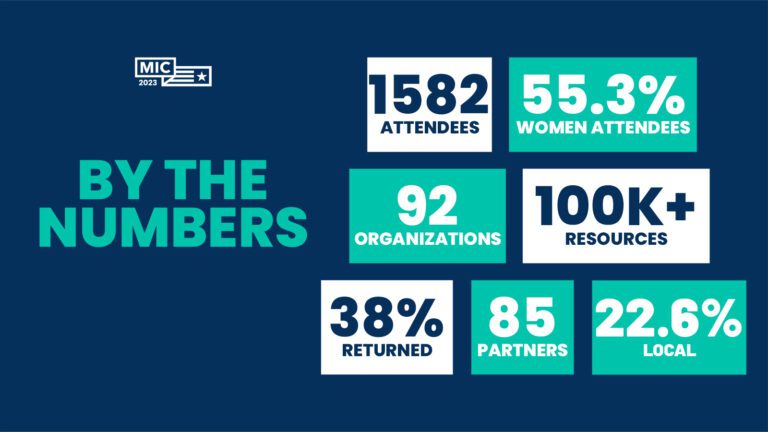
Behind The Numbers Of MIC 2023
